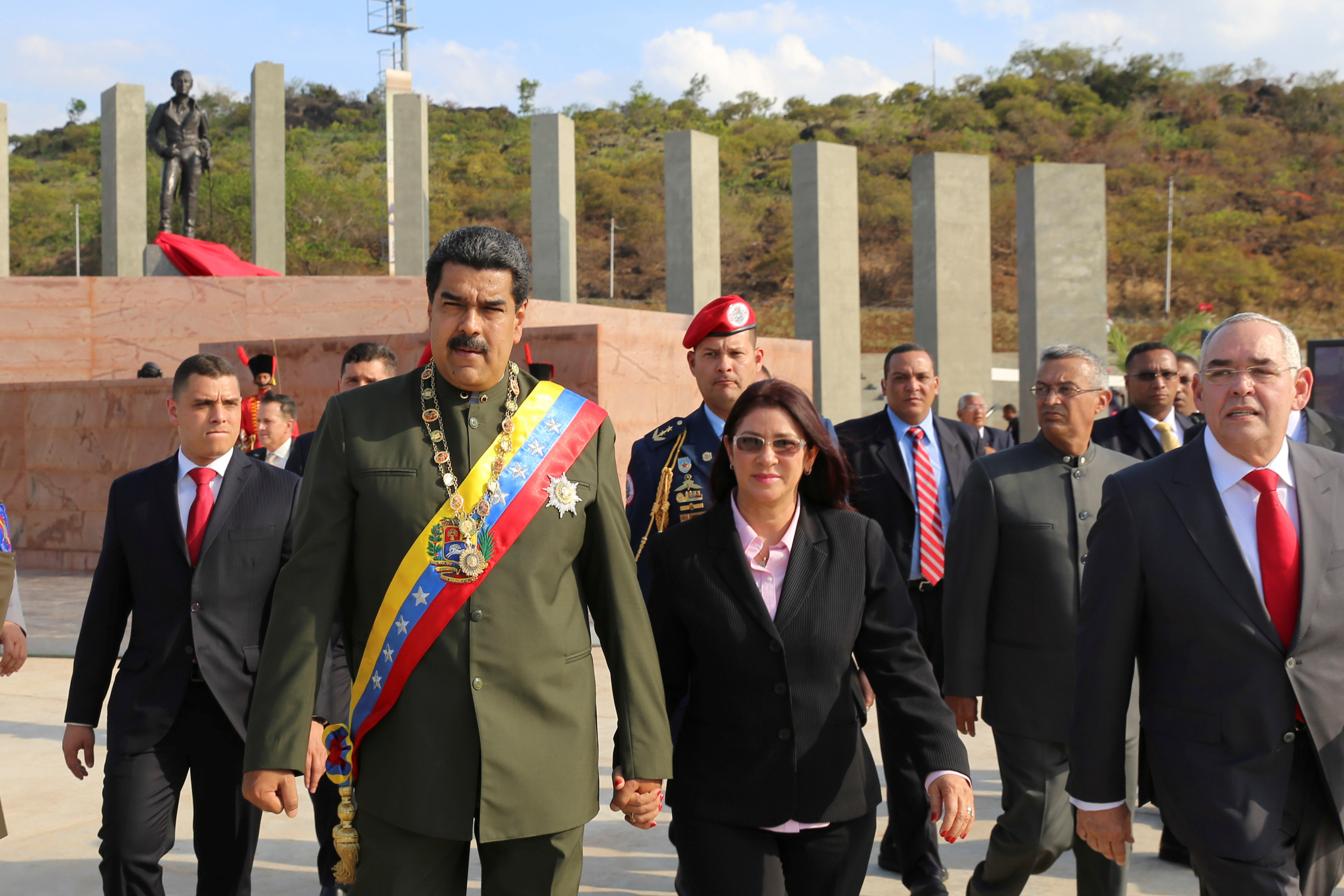
By Alexandra Ulmer
CARACAS (Reuters) – The son of Venezuela’s pro-government human rights ombudsman has surprised the country amid major protests against the leftist administration by publicly urging his father to “end the injustice.”
The opposition has accused ombudsman Tarek Saab, whose title is “defender of the people,” of turning a blind eye to rights abuses and a lurch into dictatorship by unpopular President Nicolas Maduro.
Some 29 people have died during this month’s unrest.
In many of the vast street protests in Caracas in recent days, marchers aimed to converge on his office, but security forces firing tear gas and water cannons blocked them.
So Venezuelans were shocked to see Saab’s son, a law student, breaking ranks with his powerful father and saying he himself had been a victim of what he called government repression against marchers.
“Dad, in this moment you have the power to end the injustice that has sunk this country,” said Yibram Saab in a YouTube video late on Wednesday, sitting outside and reading from a paper.
“I ask you as your son, and in the name of Venezuela that you represent, that you reflect and do what you must do,” added the younger Saab.
His father’s support would be key to allowing lawmakers to open a case to remove the magistrates of the pro-government Supreme Court, who have overridden the opposition-led National Assembly.
In the video, Saab’s son said he suffered “brutal repression” from security forces on Wednesday, when a 20-year-old demonstrator was killed by a tear gas canister that hit him in the chest. “It could have been me,” said Yibram Saab.
The ombudsman, a former student leader who became a poet, lawyer, and Socialist Party governor, responded in a radio interview later on Thursday, saying he respected his son’s right of opinion and loved him just the same.
“I love him, I adore him, whatever he might have said,” he told La Romantica station, adding that he always defended rights and condemned violence no matter which side it came on.
Maduro’s son called on Saab’s son to reconsider.
The president’s son echoed the government stance that demonstrators are terrorists trying to instigate a coup amid the biggest protests since 2014.
“Your three minutes of fame could have been different. I think you could have picked up the phone and spoken with your father, expressing to him your love and concern and listening to him,” wrote Nicolas Maduro Guerra.
The government has long accused the opposition of attempting to stage a coup, citing a short-lived attempt in 2002 against former President Hugo Chavez.
Saab, a staunch Chavez ally, was himself detained for a few hours during that coup, according to rights groups.
OPPOSITION BOOST
Opposition leaders said the video was evidence of fissures within “Chavismo,” a movement founded by the charismatic Chavez that has taken a hit under Maduro, a former bus driver and union leader whose presidency has been marked by a stark recession.
The opposition hoped Saab’s video would spur protesters to keep up street action despite fatigue, injuries, arrests and no sign of concessions from Maduro.
“The majority of us want a change, and that includes the families of those who today prop up this regime,” tweeted opposition lawmaker Juan Andres Mejia.
Maduro’s opponents are demanding a general election, the release of jailed activists, humanitarian aid to help offset shortages of food and medicine, and autonomy for the legislature.
They have been galvanized by international condemnation of Maduro’s government and Caracas’ increasing diplomatic isolation.
In what might have been a pre-emptive move to avoid expulsion, Venezuela has said it will withdraw from the Organization of American States, the first nation to do so in the bloc’s more than century-old history.
The head of the regional body had said Venezuela could be expelled, accusing Maduro of eroding the country’s democracy by delaying elections and refusing to respect the legislature.
“Today, Venezuela woke up freer than yesterday,” Maduro said in a speech to a women’s meeting on Thursday. “OAS, go to hell!”
Communist ally Cuba, which has not returned to the OAS after being suspended from 1962-2009, backed Venezuela “in this new chapter of resistance and dignity.”
But the United States said it would like Venezuela to remain in the OAS, so long as it complies with requirements. Separately, President Donald Trump, a strong critic of Maduro, said the situation in Venezuela is “very sad.”
European Union foreign policy chief Federica Mogherini condemned the violence in Venezuela, sent condolences over the dead, and urged the government to both protect peaceful protesters and set “a clear electoral calendar”
(Additional reporting by Girish Gupta and Andrew Cawthorne in Caracas, Lesley Wroughton in Washington D.C. and Nelson Acosta in Havana; Editing by Andrew Cawthorne, and Andrew Hay)









